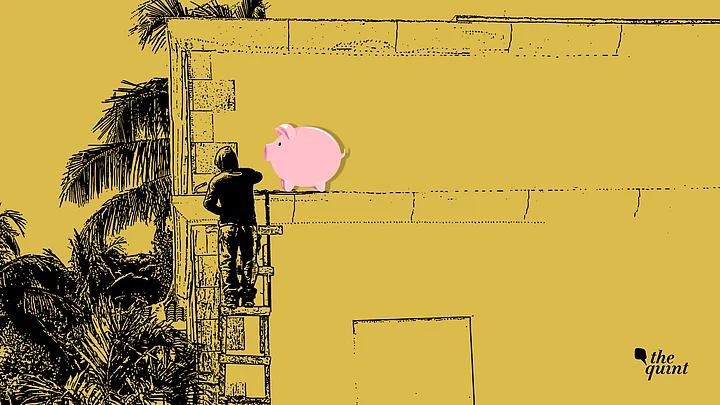The wave of competitive populism is throwing in its daily tide of game-changing ideas, and a preemptive dose of doles to outbid each other. The only winner can be the ones who have shown the patience of queuing up in election after election, and casting a vote to elect the few.
The latest being the idea of Minimum Income Guarantee (MIG), as proposed by Congress President Rahul Gandhi. From ‘Garibi Hatao’, a downright winner five decades ago, back to ‘Minimum Income’ now, the semantics might have changed, but the goal remains the same.
Though the latest data suggests that India might have pulled almost 80 percent of its population out of abject poverty in the last decade, there is no denying the fact that in the same period, we have ‘achieved’ an increase in inequality, more than any other country.
How Helpful Will ‘Direct Income Transfer’ Be?
The millions of people living at the bottom tier essentially require the State’s support, to live a life of dignity. The Modi government has made a move in this direction just before the general elections, by making a provision of Rs 75,000 crore for 12 crore farmers in the next financial year, under the Pradhan Mantri Kisan Samman Nidhi scheme (announced in the interim budget).
Building on the existing infrastructure created by JAM (Jan Dhan-Aadhaar-Mobile), the government is all set for direct income transfer of an initial amount of Rs 2,000 to 10 crore farmers who have a landholding of less than 2 acres in the present quarter. However, the income guarantee of Rs 6,000 per year is far less than the income support provided by Odisha and Telangana, which is Rs 10,000 per year, and Rs 8,000 per acre per year, respectively.
Paradoxically, the very nature of MIG being projected as a game-changer also represents the hitherto macro-failures of the State in providing primary means of life support for its citizens.
Neither in form nor substance, is it a new idea. Proposed by its ‘Founding Father’ Paine in his Agrarian Justice and supported by Nobel Laureate Herbert Simone at the turn of 21st Century, the idea has been around us, always hitting the firewall of capital and political will to implement.
Experimenting With Universal Basic Income
Many countries including Nordic states like Finland, Canada and few states of the US, are experimenting with the concept of Universal Basic Income (UBI) to woo the voters and establish a true welfare state. The renewed interest in these states has been in the wake of the rise of automation and artificial intelligence and its possible impact on the labour market.
In India too, UBI has gained traction amongst both policymakers and economists albeit for entirely different reasons. The 2016-17 Economic Survey advocated the concept of UBI while contrasting its benefits and costs.
UBI has been portrayed as an alternative to the various social welfare schemes in India and a successful measure to reduce poverty.
A true UBI would entail resources that our nation can hardly afford. However, if progressively targets whereby state ensures a basic transfer of money for various thresholds of current income, which can be financed by substituting existing non-essential subsidies, MIG as a form of UBI can go a long way in ensuring a life of dignified existence where people don’t have to fend for bare minimum food shelter or clothes.
A UBI pilot done in Madhya Pradesh a few years ago, had thrown up very impressive results, as it found that ‘relative to the residents of control villages, individuals receiving the cash transfers were seen to be significantly more likely to obtain adequate nutrition, receive regular medical treatment, invest in improved energy and sanitation, start new businesses, and send their children to school, among other improvements’.
UBI Not an Instant Solution, But Can Be Crucial In the Long-Run
While UBI or MIG might not be a one-stop solution to all the ills of the current labour market and farmer woes, it does represent an appropriate policy response, which can complement the current strategies.
That said, the idea of implementing a universal primary income mechanism is to be seen in the light of not just an employment benefit but as a primary instrument for production, and seed capital for the citizens to participate in the means of production and collaborate towards common goals.
UBI is not an instant solution, but it can be crucial in the long run for sustainability and shared prosperity. The crucial concern, as with all the policy pills, is the implementation.
While the Why is easy to answer with a plain Why Not, the Achilles’ heel would be For Whom, How Much and How. A well-customised UBI with Well Identified Whom, backed by an impeccable financial juggernaut of how much can replace the current inefficient and non-essential subsidies.
UBI has the potential to create a shared political vision, bringing different ideologies together if it ever gets implemented. Rather than ‘ differences’, it is really about achieving ‘Commonality’, and it might very well be our utopian ladder for achieving Gandhi’s Ram Rajya.
(Dr Ravi Kant Gupta is Additional Commissioner of Income Tax, Government of India. He tweets @ravikant1211. Bhaskar Pant is a partner at Policy Monks, a Delhi-based public policy research and advocacy firm. He tweets @bhaskar_pant1. This is a personal blog, and the views expressed above are the author’s own. The Quint neither endorses nor is responsible for the same.)
